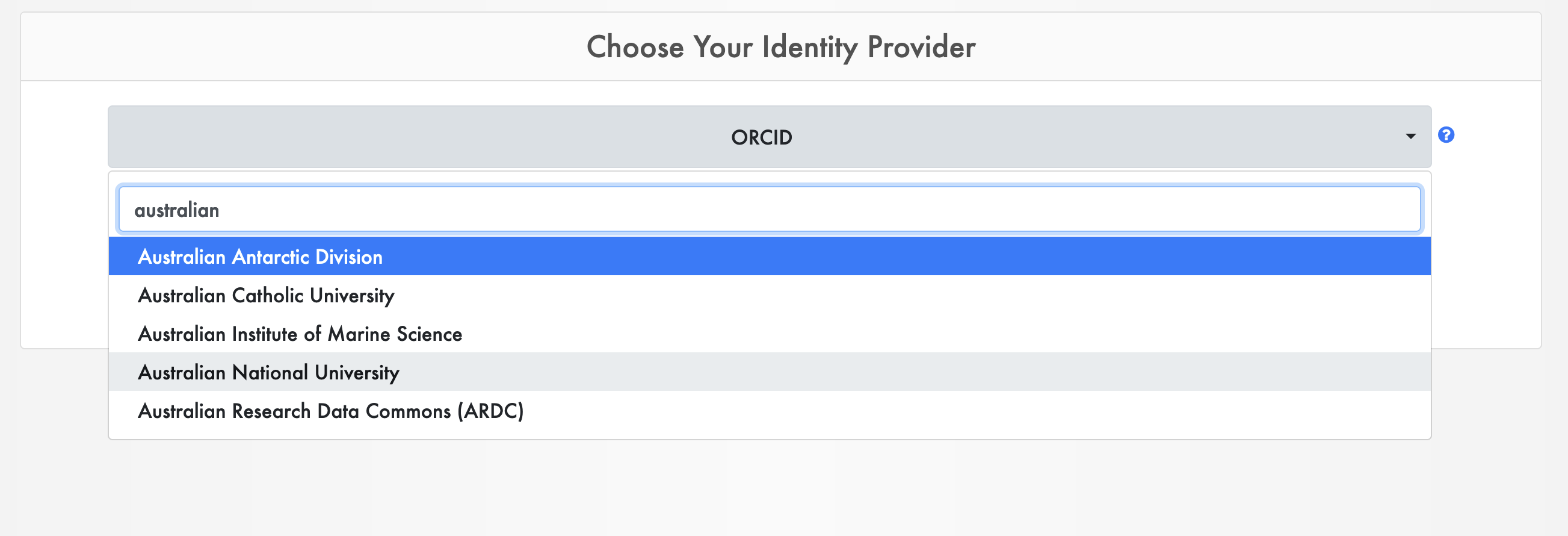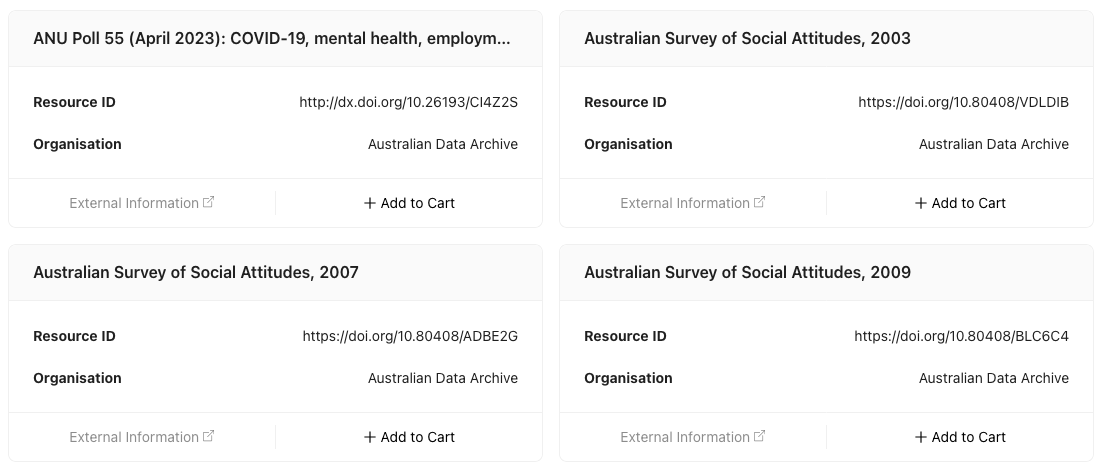Welcome to
Coordinated Access for Data, Researchers and Environments
Documentation, news and help for the CADRE Five Safes project
Releases
Find a list of all changes we've made over the years.
Guides
Follow our curated walk-throughs to understand how to use CADRE.
About
Understand why we developed CADRE and what our goals are.
Recent Posts
Administration Update
Matej Mitrev, 01 Sep 2025
We're excited to announce that version 2.0.0 of CADRE is now live! Our team has been working hard to bring you a more streamlined and powerful experience. This update includes a host of new features, bug fixes, and performance improvements across the platform.
New Admin Pages
We've added dedicated pages for viewing and managing key platform assets which previously were managed on our administration portal. New pages exist for the following assets:
- Organisations
- Catalogue Items
- Resources
- Forms
- Workflows
- Licences
- Canned Responses
New Features & Improvements
We've made a significant number of improvements and bug fixes to existing features to make your experience smoother. You'll notice improved page designs, clearer error messages, and more polish overall. View all of the new changes on our v2.0.0 release notes page, but some changes of note include:
- Introduction of canned responses Handlers are now able to use prewritten, standardized replies to a commonly asked questions or a frequent queries to autofill text when making decisions or comments.
- You can now decline invitations! Users invited to a project or Data Sharing Request can now decline their invitations, reducing clutter in your notification menu.
- Leave a project on your own. Collaborators can now leave a project without needing a project owner to remove them.
- New country form field! Created 'country' as a new form field where the user can select a country from a dropdown list. Validates using the ISO 3166-1 country alpha-2 codes.
Ready to check out the updates? Log into CADRE now! If you have any questions, you can reach out to us at admin@cadre.ada.edu.au
Public Release
Matej Mitrev, 21 Jan 2025
Production Deployment of CADRE
After extensive user and security testing, we are proud to announce the public launch of our CADRE (Coordinated Access for Data, Researchers and Environments)!
CADRE is a web-based platform designed to standardise data access requests and support custodians in making well-informed decisions about sensitive data sharing.
Safe distribution of sensitive resources is essential for the research community. CADRE reduces the barriers to access data by applying the Five Safes, an internationally recognised framework that ensures data access decisions are grounded in principles of safety and accountability. CADRE enables safe management of access to data and related resources, ensuring that organisations can verify the identity of data users and their intended use.
Key Features
Key features which CADRE has developed to achieve it's goal include:
Sign-in with federated user identities to authenticate researcher identities.

Management of access rights to resources through organisation defined workflows.

Centralisation of project information for ease of organisation and to access appropriate usage of senstive resources.

Completion tracking of training modules to ensure that researchers know how to use senstive resources.

Capability to be integrated with external systems to enable a smooth user experience.

Special Thanks
Thank you to all who have been part of this journey with us, especially our partners with whom the completion of this project would have been impossible without. We would like to extend out thanks to the following partners which CADRE was developed through collaboration and co-investment:
- Australian Academic Research Network
- Australian Access Federation
- Australian Data Archive
- Australian Institute of Family Studies
- Australian Institute of Health and Welfare
- Australian Research Data Commons
- Australian Urban Research Infrastructure Network (AURIN)
- CiLogon
- Research Graph
- Social Data Analytics
- University of Melbourne
- University of New South Wales
- University of Queensland
Partnering with UNSW
Yolante Jones, 02 Jun 2023
In May, CADRE partner, UNSW hosted a workshop at their Kensington campus. The workshop provided participants with a better understanding of how the Five Safes framework can be applied in a variety of contexts. It also allowed attendees to understand how UNSW have implemented Five Safes into their research data management processes. UNSW also shared an overview of its E-Research Institutional Cloud Architecture (ERICA) platform, which manages big data for research.
ERICA sits within the UNSW Centre for Big Data Research in Health. It is a cloud computing infrastructure. At any one time, several projects using sensitive data can be hosted within ERICA. It provides a secure environment to conduct data analysis as well as reporting. Before users can be on-boarded to the platform they must complete and pass an online training module. This module provides a comprehensive overview of what the roles and responsibilities are within ERICA as well as how the Five Safes are applied in this setting. Some workshop participants were already users or aware of the ERICA platform but for some, it provided a good introduction.
The workshop ran for half a day. It was decided a full day may impact the number of people able to attend. It was hoped registrations would come from a variety of institutions as well as positions. In the end, there were 24 attendees registered from a total of six institutions. Roles varied from research support, and PhD student to data custodian. The diverse experience in the room provided an opportunity for those with little experience in working with sensitive data to hear from those who had.
Although the content was primarily delivered for an audience who had little, to no knowledge of the Five Safes, there were activities included that provided those with more experience or knowledge to guide the conversations when needed. The size of the workshop allowed for engagement in small groups and for participants to hear different perspectives. Experiences were shared so that the group could reflect on where the Five Safes framework could sit within their institutions, departments, or teams.
It was also an opportunity for CADRE and ERICA to promote the training that has been developed in conjunction with their respective platforms. This way more perspective learners can become aware of the training and are encouraged to complete it. Increasing the number of completions of the training allows for more feedback to improve it.
Workshops can be resource intensive. However, if planned and promoted well, it can be a valuable engagement exercise. By structuring the workshop as a joint event, the attendees could learn from a variety of presenters as well as how the Five Safes is applied in different contexts. By partnering with UNSW, CADRE was able to present to an audience outside of traditional humanities or social science disciplines. Overall, the workshop was successful and can provide guidance on any improvements required for future workshops.
Looking for more posts?
Our team have written articles to give insight into the project lifecycle of CADRE.